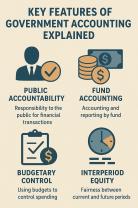How much do you make off of annuities?
The earnings from annuities can vary widely depending on several factors, including the type of annuity, the amount of the initial investment, the terms of the annuity contract, and prevailing interest rates. Here are some key points to understand about the earnings from annuities:
Type of Annuity:
Fixed Annuities: Fixed annuities provide a guaranteed interest rate for a specified period. Earnings are predictable and do not depend on market performance. The interest rate offered on a fixed annuity can vary but is typically lower than potential returns from riskier investments.
Variable Annuities: Variable annuities allow you to invest in a selection of sub-accounts similar to mutual funds. Earnings from variable annuities depend on the performance of these underlying investments and can fluctuate. There is potential for higher returns, but also more risk.
Indexed Annuities: Indexed annuities offer returns based on the performance of a specific index, such as the S&P 500. Earnings can be higher than those of fixed annuities but lower than the index's actual returns due to participation rates and caps.
Initial Investment: The amount you invest in an annuity, often referred to as the principal or premium, will influence your earnings. Generally, a larger initial investment will result in higher earnings over time.
Interest Rate (Fixed Annuities): In the case of fixed annuities, the interest rate specified in the contract plays a significant role in determining earnings. A higher interest rate will result in greater earnings.
Investment Performance (Variable Annuities): For variable annuities, the performance of the underlying investment portfolio will directly impact your earnings. If the investments perform well, you can earn more. Conversely, poor investment performance can lead to lower returns.
Contract Terms: The terms of the annuity contract, including the length of the payout period and any additional riders or features, can affect your earnings. Longer payout periods may result in higher total earnings but lower annual income.
Fees and Costs: Annuities often come with fees and expenses, such as insurance charges, administrative fees, and investment management fees (for variable annuities). These costs can reduce your overall earnings.
Withdrawal Timing and Penalties: The timing and frequency of withdrawals from the annuity can impact your earnings. Early withdrawals, especially from fixed or indexed annuities, may result in penalties and reduced earnings.
Tax Considerations: The tax treatment of annuity earnings can vary based on factors like the type of annuity and how distributions are taken (e.g., lump-sum or periodic payments). Consult a tax advisor to understand the tax implications of annuity earnings in your specific situation.
It's important to note that annuities are primarily designed to provide a stream of income, and their appeal often lies in the guarantee of regular payments rather than in high returns. Earnings from annuities may be more modest compared to other investment options, but they can offer peace of mind and financial stability, especially for retirees seeking a dependable income source.
Before purchasing an annuity, carefully review the terms and conditions of the contract, understand the associated fees, and consider your individual financial goals and risk tolerance. It's advisable to consult with a financial advisor who can help you evaluate whether an annuity aligns with your retirement and financial planning needs.
Understanding Annuities and Their Income Potential
Annuities are insurance contracts that provide you with a guaranteed income stream in retirement. You can purchase an annuity with a single lump-sum payment or with a series of payments over time.
There are two main types of annuities: immediate annuities and deferred annuities.
- Immediate annuities start paying out an income stream immediately after you purchase them.
- Deferred annuities grow tax-deferred until you start receiving income payments.
Annuities can be a good option for people who are looking for a guaranteed income stream in retirement. However, it is important to understand the different types of annuities and how they work before you purchase one.
Exploring the Earnings and Returns from Annuities
The earnings and returns from annuities vary depending on the type of annuity you purchase and the insurance company you buy it from.
- Fixed annuities offer a guaranteed rate of return.
- Variable annuities invest in the stock market, so they can offer higher returns, but they also come with more risk.
- Indexed annuities offer a guaranteed rate of return, but they also have the potential to earn higher returns if the stock market performs well.
Estimating Your Income from Annuities: What to Expect
The amount of income you receive from an annuity depends on the following factors:
- The type of annuity you purchase: Immediate annuities typically pay out a higher income stream than deferred annuities.
- The amount of money you invest: The more money you invest, the higher your income stream will be.
- The interest rate: Annuities with higher interest rates will pay out a higher income stream.
You can use an annuity calculator to estimate your income from an annuity.
Here are some things to keep in mind when estimating your income from an annuity:
- Inflation: Inflation can erode the purchasing power of your income over time. Be sure to factor in inflation when estimating your income needs in retirement.
- Tax implications: Annuities are subject to different tax implications depending on the type of annuity you purchase. Be sure to talk to a tax advisor about the tax implications of annuities before you purchase one.
Overall, annuities can be a good option for people who are looking for a guaranteed income stream in retirement. However, it is important to understand the different types of annuities and how they work before you purchase one. You should also talk to a financial advisor to make sure that an annuity is right for you.













